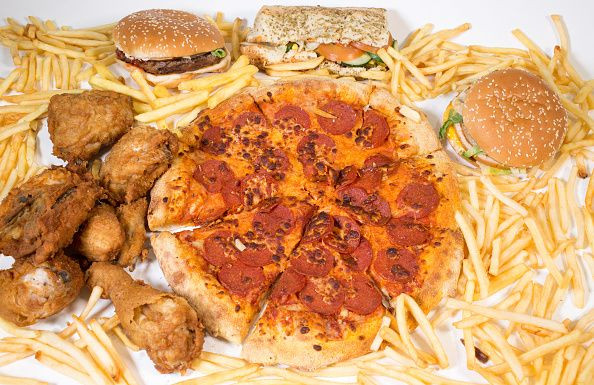Some Kids Ate More Fast Food During COVID-19 Pandemic: Poll
KEY POINTS
- One in six parents said their kids ate fast food "at least twice a week"
- Barriers to having home-cooked meals included being "too stressed" or "too tired"
- Many parents agreed that fast food is unhealthy but is fine in moderation
While many parents said their families were eating healthier since the COVID-19 pandemic began, some also noted that their children actually ate more fast food, the results of a new poll show.
The pandemic certainly disrupted families' routines in many ways, from having to work and study from home to having more screen time, the University of Michigan noted in a news release. Another important thing that the pandemic disrupted is families' eating habits.
The University of Michigan Health C.S. Mott Children's Hospital National Poll on Children's Health gathered responses from a "national sample" of 2,019 parents of children aged 3 to 18 about the changes in their eating habits in the past months.
Half of the parents said that they had more home-cooked meals with the family since the pandemic began, but about 20% said "they had fast food more often," the report of the poll, published Monday, indicated.
Parents' Perception of Their Child's Weight
The poll also looked at the differences in the reported consumption habits based on how the parents perceived their child's weight.
"Overall, 76% of parents feel their child is about the right weight while 13% think their child is overweight and 10% underweight," the poll found. Interestingly, parents with lower incomes were "more likely" to say that their child is overweight compared to those with higher incomes.
"Around two-thirds of parents (66%) agree their family meals have been healthier over the past few months while 20% of parents say their child has had fast food at least twice a week in the same timeframe," poll results also indicated. "More parents of overweight than normal-weight kids say their children have fast food at least twice a week (33% vs 17%)."
Although 85% of the parents agreed that fast food is "unhealthy for children," 84% also said it is "fine in moderation."
Barriers to Having Home-Cooked Meals
Some of the reasons parents cited as "barriers" that kept them from having home-cooked meals are being "too stressed" or "too busy." Such obstacles were more common among parents of children who are overweight.
"Three-quarters of parents (72%) agree with the statement that when stressed for time, fast food is a good family option," the poll found. "One-third of parents (33%) say that fast food is good value for the money and 24% feel it is less expensive than making meals at home."
This could be quite problematic as fast food items are typically high in calories, sodium and saturated fat, the report stated, noting that sugary drinks, which are typically linked with obesity, "are the largest source of calories" in many fast food meals.
"One fast food meal often exceeds the recommended fat, sodium and calorie intake for the entire day without providing many nutrients," Mott Poll co-director and pediatrician, Gary L. Freed, M.D., M.P.H., said in the university news release. "Parents should consider using nutritional information to help their kids learn how to make healthier choices. Trying to make those meals even a little bit healthier can have an important impact."
It could also help if parents could encourage children to order water or milk instead of soda, Freed noted.
They could also think of cooking as family time, the report suggested. For instance, they could engage their younger children in the process or encourage their older children to also try their hands and "experiment" in the kitchen by themselves.
"Although it may take extra time to prepare food with children or teens, it is also an opportunity to share an experience or to learn something new together," the report noted.

© Copyright IBTimes 2025. All rights reserved.






















